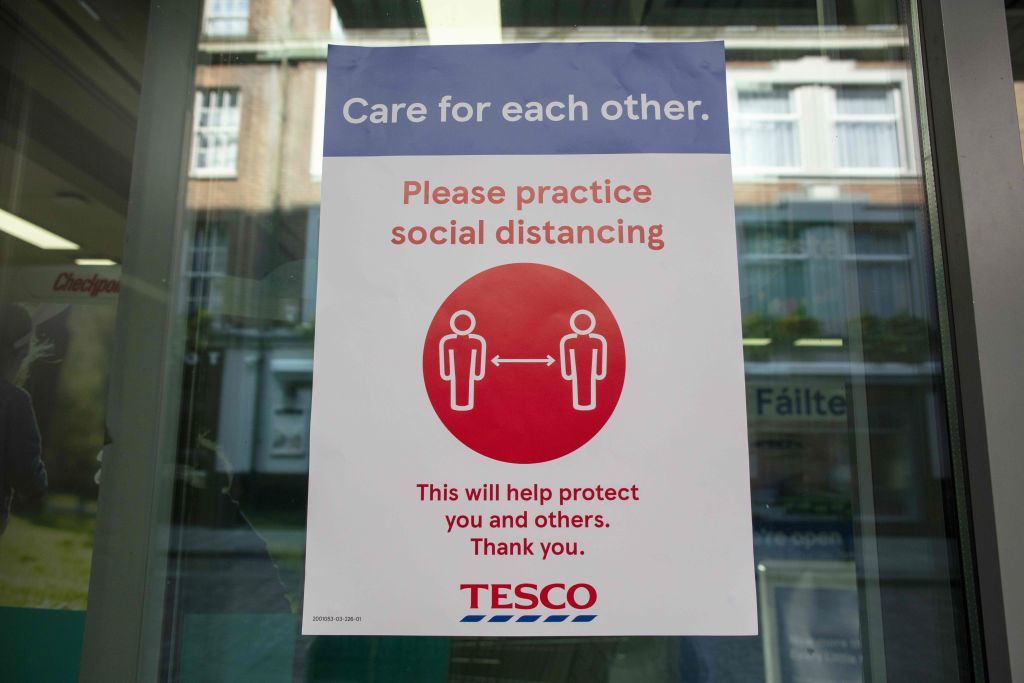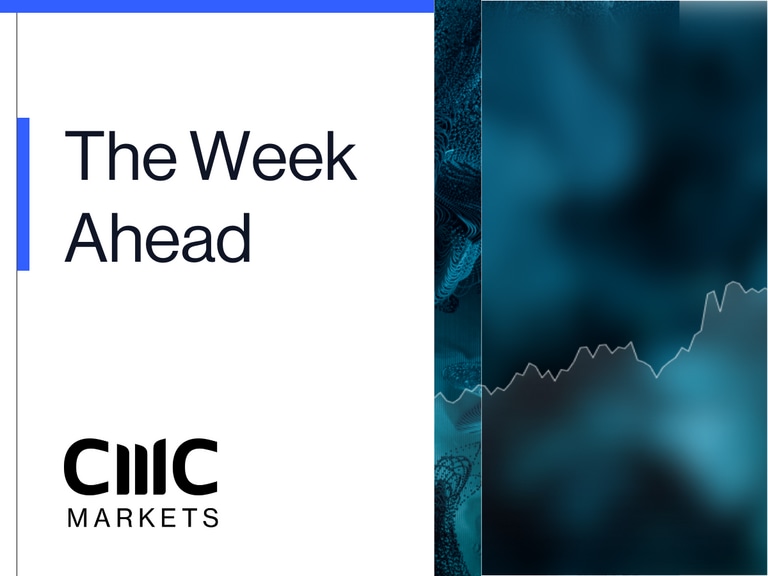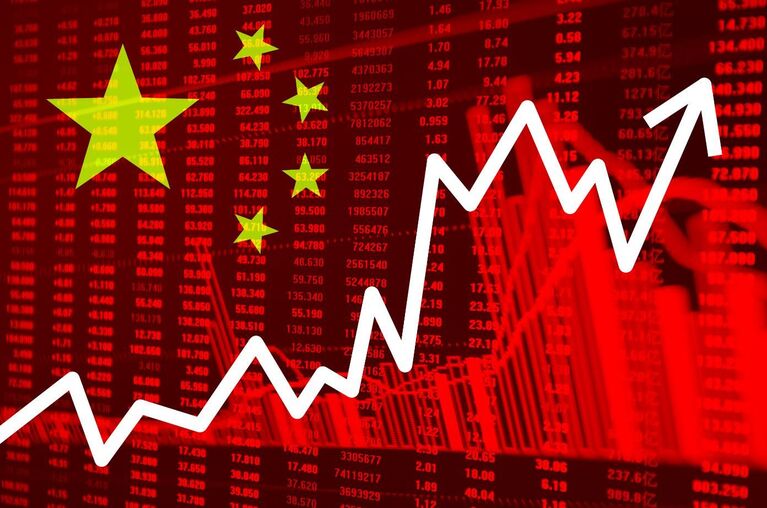
European markets have slipped back today as investors got a flavour of the economic destruction being wrought across Europe by the virus with the Bank of France’s estimate that the French economy contracted 6% in Q1, while the latest estimates from Germany suggest a 10% contraction in Germany’s economic output in the first half of the year.
It would appear that the size of the economic contraction, when extrapolated across the rest of 2020 has delivered a huge wake call to markets as to the eventual price tag of this crisis.
Hopes earlier this week that a fall in infection rates over the weekend in France, Spain, and New York in the US, might mark a plateauing of infection and death rates of Covid-19 have also seen a sharp dose of reality in the last 24 hours, as Spain reported another increase in infection and death rates for the second day in a row, in data released this morning.
The UK numbers also showed a sharp rise, while a new report by scientists at Imperial College has tempered some of the enthusiasm of the last couple of days, as it predicts hundreds of new deaths in the coming week.
In the face of this economic threat it therefore beggars belief that EU leaders have been unable to agree on a unified response on a €500bn package that could help mitigate the economic impact of the pandemic. Once again when faced with the need to respond to an existential crisis finance ministers have been unable to overcome the same old divisions that so nearly tore the bloc apart nearly a decade ago.
Neither side appear able to see past the narratives of a spendthrift south and a more fiscally cautious north. In some respects, both sides are as bad as each other, with one side unwilling to pass reforms to better account for the additional spending required, and the other side unwilling to give the benefit of the doubt to nations that could really do with the money, to ease the suffering of their populations.
Despite this backdrop, today’s falls in European markets have been fairly modest when set against the gains seen yesterday.
Life insurers have fallen back sharply after Aviva and RSA both pulled their final dividends, as a result of pressure from the Bank of England’s Prudential Regulation committee. Both companies also suspended their guidance for this year. Insurance groups Direct Line Group and Hiscox also said they would be pulling their dividends in line with that same guidance.
The UK’s number one supermarket, Tesco published its full-year numbers this morning, however they were largely overshadowed by how the company has dealt with the challenges facing the business around the coronavirus pandemic, including an increase in costs, which they estimated could be as high as £950m. This rise in costs has translated into a decline in the share price today, with sector peer Sainsbury's also feeling the fallout with a similar decline, as investors extrapolate the increase in costs across the sector.
There has been some criticism that Tesco has decided to go ahead with its £5bn special dividend, given the tax breaks on business rates delivered by the government, however the Covid-19 statement makes clear that employees are also being compensated for their efforts, and Tesco was at pains to point out it was fulfilling its responsibilities in other areas as well.
It is important to remember that pension funds are shareholders as well and the widespread cancellation of dividends that we’ve seen this week could well store up problems for the future, especially if affordable payouts are discouraged, and small investors and pension funds lose out. It is important to understand that dividend payouts are perfectly legitimate as long as they are affordable.
Online retailer ASOS has seen it shares rise for the third day in a row, up over 80% this week, after the company reported first-half revenue that was 2.6% above estimates at £1.6bn. Despite these numbers, and with no visible stores, the retailer has still been hit by the sharp downturn in consumer spending in recent weeks, with group sales declining over 20%. To compensate for this and further disruption the company announced that it had taken steps to shore up its balance sheet by adding £60m to £80m to its revolving credit facility, as well as accessing the Bank of England’s Covid-19 finance facility. The company also said it was hoping to raise over £200m from shareholders by way of a share placing, to further bolster its finances, a wise move given that net debt rose from £37m a year ago to £163m now.
US
US markets have started on a more positive note today in relation to where they finished yesterday, when some big gains completely evaporated as the day progressed. Talk of another stimulus plan, along with comments from Anthony Fauci, the director of the US National Institute of Allergy and Infectious Diseases, that there could well be turnaround in reported cases after this week, has seen markets move higher.
In company news, McDonalds said that March same stores sales fell 22%, and that they would be suspending their share buyback program, while raising $6.5bn of debt to strengthen its cash position. The company also suspended its guidance for 2020.
Zoom has been one of the big winners from the crisis as more people work from home. The video conferencing app company has seen its share price surge, however certain concerns have been raised about privacy issues on the app, and the company is facing a class action as a result. The company is accused of overstating privacy standards and not having clear enough security protocols in order to secure data on the app. The app has already been banned by schools in New York.
Tesla shares are also in focus after the company announced plans to cut employees pay and furlough hourly workers until May 4th, when it hopes to resume production of its cars.
Boeing has also announced that it had found new software flaws in the 737 MAX, and would be releasing another software patch to address the issues. The company still seems to have faith that the plane will be able to fly again, despite continuing to find new problems with the software. So far this year the company has uncovered multiple problems which it has pledged to fix in an attempt to get the plane in the air again. The number of problems discovered in the past few months does make one wonder how the original plane was ever allowed to fly at all. That is unlikely to be its biggest problem given that it is likely to start receiving multiple cancellations once the coronavirus pandemic has run its course. No airline will want to buy new planes at a time when fewer people are likely to want to travel. Boeing’s problems are only likely to get worse from here.
FX
The US dollar has come under pressure today, with only the Canadian dollar doing worse ahead of the release of the latest Fed minutes, which are due out in the next few hours.
The pound has outperformed today, benefitting to some extent from the disagreements amongst EU leaders about the need for a fiscal response to help ease some of the pressure in the worst hit parts of southern Europe. Reports that Prime Minister Boris Johnson is responding well to treatment in intensive care aren’t hurting either, as it looks to retest last weeks highs.
The gradual relaxation of quarantine restrictions across China and in particular Wuhan appears to be giving the Australian dollar a bit of a boost, in the hope that a continued recovery there will translate into improvements in the economic outlook going forward. The S&P downgrade earlier today appears to be an almost distant memory.
Crude oil prices are getting a slight bid ahead of tomorrow’s OPEC+ meeting, as well as the G20 oil ministers meeting which is scheduled for Friday. The latest inventory data showed a massive build of 15.17m barrels, much higher than the expected 9.8m barrels. Despite the bigger than expected number prices barely moved, with oil traders’ content to wait and see what OPEC+, and or G20 deliver later this week. Gold prices have barely moved despite the slide in European markets.
Disclaimer: CMC Markets is an execution-only service provider. The material (whether or not it states any opinions) is for general information purposes only, and does not take into account your personal circumstances or objectives. Nothing in this material is (or should be considered to be) financial, investment or other advice on which reliance should be placed. No opinion given in the material constitutes a recommendation by CMC Markets or the author that any particular investment, security, transaction or investment strategy is suitable for any specific person. The material has not been prepared in accordance with legal requirements designed to promote the independence of investment research. Although we are not specifically prevented from dealing before providing this material, we do not seek to take advantage of the material prior to its dissemination.






















